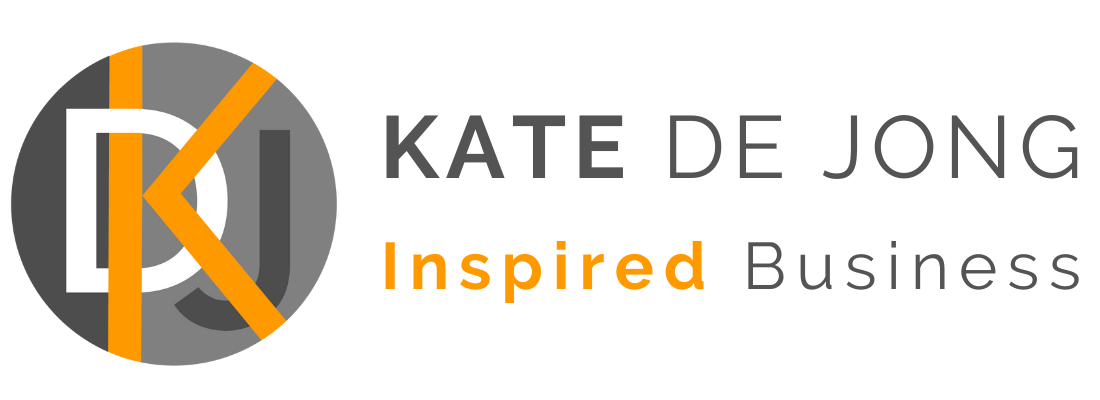Having a high academic score doesn’t necessarily make you a desirable candidate anymore for global tech companies like Google. These days, corporate giants are specifically looking for soft skills in their new employees (Abdul S, 2022)
Soft Skills are the New Superpower
Soft skills are non-technical skills that describe how you work and interact with others. Unlike hard skills, they’re not necessarily something you’ll learn in a course, like data analytics or programming. Instead, they reflect your communication style, work ethic, and work style.
Terms like ‘soft skills’ and ’emotional intelligence’ have only become widely accepted in the past decade. Back in the early 1990s, publishers told science journalist Daniel Goleman not to use the word ‘emotion’ in a business book. The notion at the time was that emotions had no role in the workplace. Business management focused on workers’ physical productivity, not their feelings. It was believed that ‘hard skills’ drove the bottom line.
It wasn’t until 1990 when psychologists Peter Salovey and John Mayer published their landmark journal article called ‘Emotional Intelligence’ that things started to shift in mainstream perception. They described emotional intelligence as “the ability to identify and manage one’s own emotions as well as those of others.” They proposed that emotions serve a particularly useful function and that emotional intelligence (EQ) is not just a group of capacities or skills, but rather, it is an actual intelligence that is equally important as cognitive intelligence (IQ).
There’s now a growing acceptance that emotional intelligence can be taught, measured, and improved.
Companies that focus on developing emotional intelligence in their employees see significant increases in staff retention, engagement, and productivity.
In other words, cultivating emotional intelligence in your workforce significantly improves business profitability (Harvard Business Review). And this is why the most sought-after companies like Google are now using EQ as the single most important metric when hiring new employees.
Emotionally intelligent people are happier and more successful.
Since the nineties, emotional intelligence and self-awareness have been studied extensively by the world’s leading academics. Results show consistently that people with a high EQ are:
![]() More fulfilled.
More fulfilled.
![]() More creative.
More creative.
![]() More competent.
More competent.
![]() Better communicators.
Better communicators.
![]() More promotable.
More promotable.
![]() More effective leaders with more profitable companies.
More effective leaders with more profitable companies.
![]() More powerful and better negotiators.
More powerful and better negotiators.
![]() Happier and more successful.
Happier and more successful.
![]() Perform better at work.
Perform better at work.
![]() Have stronger relationships.
Have stronger relationships.
![]() Are less likely to lie, steal, and cheat. [Dr Tasha Eurich]
Are less likely to lie, steal, and cheat. [Dr Tasha Eurich]
The Six Intelligences in Business
I’ve been fascinated by the concepts of emotional intelligence and self-awareness for decades now. I love learning more about myself and other people — and helping my clients to do the same — through behavioural tests like the Harrison Assessment (one of my favourites), the Enneagram, Myers-Briggs and DISC (you can learn all about those here).
One of the most powerful tools available to develop greater emotional intelligence that I’ve come across in recent years is the B.A.N.K Personality Coding system which identifies six different types of soft skills that literally give you superpowers in business.
The six intelligences are:
- Emotional intelligence.
- Personality intelligence.
- Sales intelligence.
- Business intelligence.
- Artificial intelligence.
- Spiritual intelligence.
These six intelligences are the engine that drives your business results. When you actively take the time to cultivate skill across these six different areas, it results in your ability to:
![]() Be a more influential leader.
Be a more influential leader.
![]() Create more powerful marketing.
Create more powerful marketing.
![]() Be a more profitable business.
Be a more profitable business.
![]() Create high-functioning teams.
Create high-functioning teams.
![]() Produce high-converting sales.
Produce high-converting sales.
In short, soft skills create business success.

![]()
Discovering and learning the B.A.N.K Personality Coding System has allowed me to:
- Increase my sales conversion rate consistently from around 60% to more than 90%.
- Produce powerful marketing messaging and assets that convert.
- Speak the language of my clients so I can work with them more effectively.
- Develop more fruitful relationships and strategic partnerships that benefit my business.
You can ‘crack’ your own B.A.N.K personality code by going to this link.
The 6 Intelligences
1. Emotional Intelligence
Emotional intelligence is the ability to understand, use, and manage your own emotions in positive ways to relieve stress, communicate effectively, empathize with others, overcome challenges and defuse conflict. Emotional intelligence helps you build stronger relationships, succeed at school and work, and achieve your career and personal goals. It can also help you to connect with your feelings, turn intention into action, and make informed decisions about what matters most to you.
Emotional intelligence is commonly defined by four attributes:
- Self-awareness: The ability to recognise your own emotions, strengths, blind spots and your impact on others.
- Awareness of others: Ability to recognise another’s emotional state with compassion and non-judgment.
- Self-regulation: Able to wisely manage your emotions and impulses.
- Empathy: Able to identify with and understand another’s emotions.
- Interpersonal skills: Effective at managing relationships that benefit everyone involved.
2. Personality Intelligence
The Greek physician Hippocrates, known as ‘the father of medicine’ (460—370 BC) already defined four different and distinct types of personality during his time. He defined them as:
1) Melancholic: Analytical and literal
2) Choleric: Ambitious and leader-like
3) Sanguine: Pleasure-seeking and sociable
4) Phlegmatic: Relaxed and thoughtful
Modern psychology has embraced those four different types in varying formats, and B.A.N.K is rooted in a similar personality distinction, but it’s the first time a system has been developed around buying behaviour, which is what makes it so powerful in business. When you understand why your clients buy, it’s a powerful weapon.
Personality intelligence means:
- You understand and can identify the different types of personalities.
- You know and understand how you’re different and similar to others.
- You use your understanding of another’s personality to drive your communication.
- You know the underlying values of the person you’re talking to and you know how to speak directly to their values.
![]()
3. Sales Intelligence
In business, sales intelligence is the information and techniques that salespeople use to make informed decisions in the selling cycle. It’s about having a powerful understanding of why people buy and using that understanding to increase sales conversions.
In sales, the sales velocity equation is a well-known formula used to drive sales growth.
Your sales velocity is influenced by the number of leads you have, the deal value, your conversion rate and the length of your sales cycle. Understanding and using the B.A.N.K system helps you increase the number of leads you generate, increase the conversion rate, and decrease the sales cycle length.

4. Business Intelligence
Business intelligence is the ability to use your soft skills to drive business decisions by:
- Know the personality type of your ideal customer.
- Know how to speak to all customer types.
- Understanding all customer’s buying motivation.
- Crafting all marketing messages to appeal to specific types.
- Customised sales scripts and communications for different personality types.
The B.A.N.K system helps with all of the above which is why it’s such a powerful system.
5. Artificial Intelligence
The artificial intelligence that’s built into the B.A.N.K system is one of the most powerful aspects of the model. You can copy and paste a client’s emails, communications or social posts into their AI tool and it ‘decodes’ their personality, telling you how to speak to them in a way that resonates with their buying values.
It’s a game-changer!

6. Spiritual intelligence
The B.A.N.K methodology is the first time I’ve come across a business tool that explicitly discusses and measures the concept of spirituality in business. I’ve always been aware of my own spiritual understanding and path, but it’s not until now that it’s been discussed in a business sense. I personally find it refreshing and revolutionary. Spiritual intelligence is about:
- Seeing greater meaning and purpose in life.
- Actions are driven by wisdom and compassion.
- Viewing your business and career as an opportunity for spiritual growth.
- Your identity is not defined by your physical self.
- Feeling guided in decision-making by a higher power.
- Detecting qualities in people that transcend their physical appearance, personality and emotions.
- Seeing the potential for good in difficult or tragic situations.
To learn more about the B.A.N.K Personality Coding Methodology, check out these articles:
Selling is Not a Numbers Game: The B.A.N.K Personality Coding System—An Overview
The Powerful Lesson I Learned from Losing One of my Best Deals Ever
How Does an Engineer End Up Becoming a Business Coach?
You can ‘crack’ your own B.A.N.K personality code by going to this link.
I hope you found this helpful! If you’d more information, please reach out.
In service to your success,
Kate De Jong, PhD
Inspired Business
Business & marketing coach for small business owners
[email protected]
katedejong.com
0424 176 658


 Kate De Jong is a business and marketing strategist for start-ups and small business owners who want to grow their business with ease. Kate is a bestselling author and a Chief Executive Women award-winner for women in leadership. Formerly a consulting engineer for more than fifteen years, Kate left her engineering career in 2012 to pursue her passion and zone of genius—entrepreneurship and marketing — and has never looked back!
Kate De Jong is a business and marketing strategist for start-ups and small business owners who want to grow their business with ease. Kate is a bestselling author and a Chief Executive Women award-winner for women in leadership. Formerly a consulting engineer for more than fifteen years, Kate left her engineering career in 2012 to pursue her passion and zone of genius—entrepreneurship and marketing — and has never looked back!